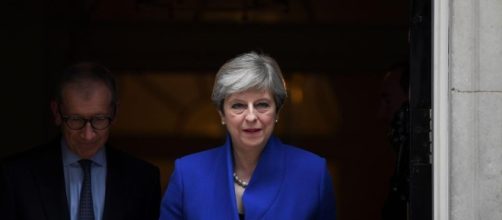As the exit poll came in on June 8th, it had become increasingly clear that Theresa May’s decision to call for a snap general election was one of the worst decisions in her political career. She announced the election with a 24-point lead over Jeremy Corbyn’s Labour, according to the polls, who often underestimate Conservative support. But the exit poll was spot on with how many seats would go Conservative way.
Conservative won 318 seats (including House of Commons Speaker, John Bercow), a net loss of 12, Labour with 261, a net gain of 29. Meanwhile the SNP lost 21 seats, winning 35 seats and the Liberal Democrats, Democratic Unionist Party (Dup) and Sinn Fein all increased the number of seats to 12 (+3), 10 (+2) and 7 (+3) respectively.
One giant misstep for Theresa May
Despite winning the most seats and having the largest voter share, this is a loss for Theresa May. Because she went into the this with such a huge lead, thinking she could all but wipe out real opposition to their plans. She triggered Article 50 and then called for the snap election, probably in mind that she could make it all about Brexit but that plan backfired drastically as people were concerned over the public services such as the NHS and police. Her campaign was dreadful, she failed to engage with the public, hiding behind closed events and dictating what journalists could and couldn’t ask.
A coalition of chaos perhaps? Theresa May called the election to strengthen her hand, she failed.
She made the election about her and Jeremy Corbyn, but the electorate has largely said up yours to that sentiment. Theresa May gambled this election and screwed it up, but not before she triggered Article 50. If her government doesn't last the negotiations, which is likely, it would push further chaos as the time limit of the negotiations would be getting shorter and shorter as more mess is created by May.
The Conservative campaign is a stark contrast to Labour’s, the former concentrated on Theresa May as an individual “what I will do”, with them asking the public to give her power but Labour were presented as a collective, “what we will do for you”.
Instability with the DUP
The next problem comes in the form of the DUP, who have backed the Conservatives, in a bid to gain power for Theresa May.
To put into context, the next government will be further right-wing than previously. The DUP were formed through armed extremists in 1971, they are anti-LGBTQ, anti-abortion, anti-human rights and are extreme religious fundamentalists and creationists that are also climate change deniers.
The Conservatives however, are gaining their support to form a government of stability...the problem is that the DUP are against power-sharing with Sinn Fein and are against the Good Friday Agreement. With the latter in jeopardy because of Brexit, and May pursuing a hard Brexit, this creates an extremely volatile and unstable coalition.

